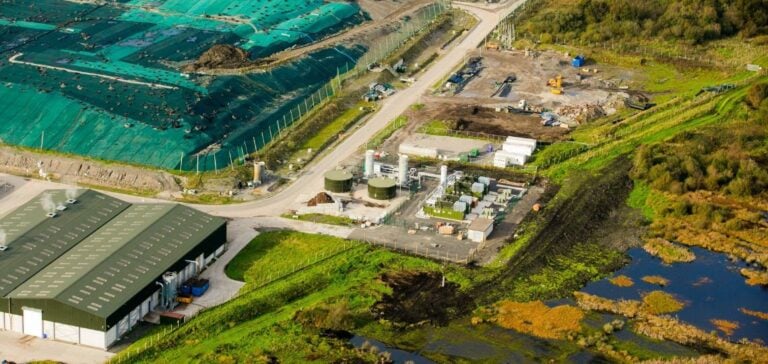The first carbon credits bearing the “Core Carbon Principles” (CCP) high-integrity label have appeared on the Voluntary Carbon Market (VCM). This initiative aims to restore confidence among market participants and bring much-needed clarity to a sector often criticized for its quality problems. A total of 27 million carbon credits, derived from methodologies validated by the Integrity Council for the Voluntary Carbon Market (ICVCM), have been marked with the CCP label, according to a report by S&P Global Commodity Insights. What’s more, in the United States, the government has announced its intention to strengthen the integrity of this market.
An Expected and Necessary Label
These carbon credits come from projects involving ozone-depleting substances (ODS) and the capture and use of landfill gas, technical processes that have received substantial government funding in recent years. This label represents a significant step forward for a market that has seen its value plummet due to growing concerns about credit quality.
Pedro Martins Barata, co-chairman of the ICVCM expert panel, stressed in an interview with S&P Global Commodity Insights that although these credits represent a small part of the VCM, they mark an essential beginning. Further announcements in the coming months will cover a wider range of methodologies, covering more than 50% of the market.
Outlook and expectations
According to ICVCM, 27 categories of carbon credit projects, including renewable energy, REDD+, improved forest management (IFM), and afforestation, are currently under evaluation with announcements expected by September. These announcements could have a more significant impact, as they concern a large share of the market.
Annette Nazareth, President of the ICVCM, said that this step is just the beginning of an ongoing process to assess and certify carbon credit methodologies to ensure their integrity.
Prizes and Challenges
The voluntary carbon market has gone through some difficult years, and many hope that CCP-labeled credits will lead to a better-functioning market, with higher prices for these high-quality credits. Barata pointed out that, theoretically, these credits should achieve significant price premiums compared to credits without high-quality labels.
However, some traders believe that these premiums will only emerge when the dynamics of supply and demand for these project categories are in play. Criticism of the quality of some carbon projects has had a major impact on offset prices, discouraging some companies from participating in the market. Credit prices have fallen over the past 12 months, due to a decline in liquidity.
Market impact
Platts, a division of S&P Global Commodity Insights, valued nature-based carbon credits at $3.45/mtCO2e as at June 4, up slightly on the record low of $2.70/mtCO2e seen in February. The ICVCM, responsible for setting benchmark standards for high-quality carbon credits, has introduced CCP labels and an assessment framework to help define high-integrity carbon offsets.
Underlying Economic Mechanisms
The introduction of CCP credits is seen as a crucial mechanism for revitalizing the voluntary carbon market. By setting high standards, the ICVCM seeks to improve transparency and trust, key elements in attracting new investors and participants. High-quality credits are likely to generate price premiums, creating an economic incentive for project developers to adhere to strict standards.
What’s more, CCP certification can potentially create a bifurcated market where high-quality credits trade at significantly higher prices than non-certified credits. This differentiation could encourage companies to adopt more sustainable practices and invest in carbon-reduction projects, thereby increasing the overall impact on the fight against climate change.
Challenges and opportunities
Setting up these high-integrity labels is not without its challenges. The cost of certification and the complexity of methodologies could deter some smaller market players. However, for committed companies and investors, it offers an opportunity to demonstrate their commitment to sustainable practices and to position themselves favorably in an evolving market.
The credibility and transparency provided by CCP labels could also attract new institutional players, increasing the liquidity and robustness of the VCM. In the long term, widespread adoption of CCP credits could help stabilize prices and reduce market volatility.
The introduction of these high-integrity labels is seen as a crucial step towards stabilizing and reinvigorating the voluntary carbon credit market, bringing greater transparency and confidence among market players.






















